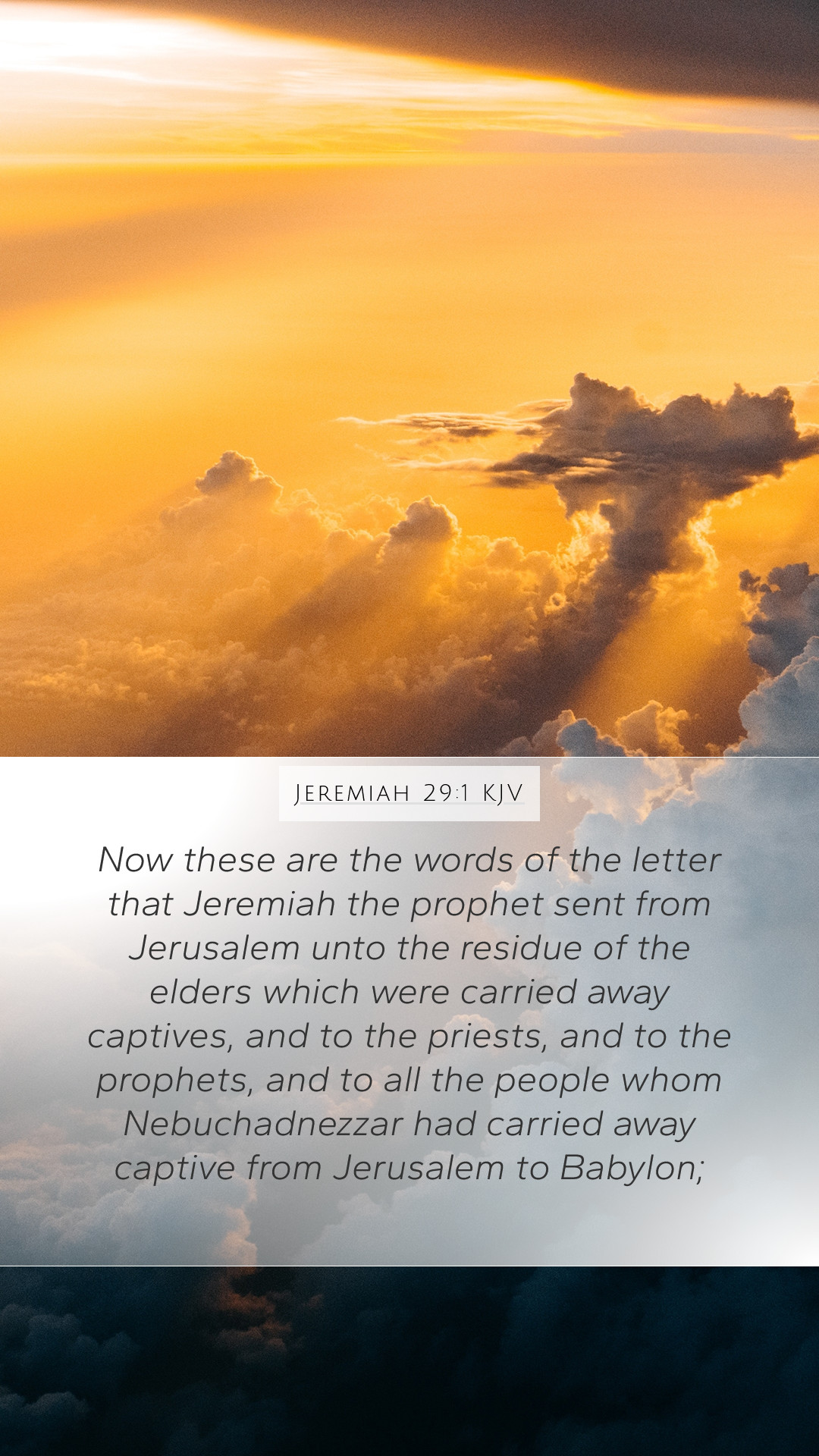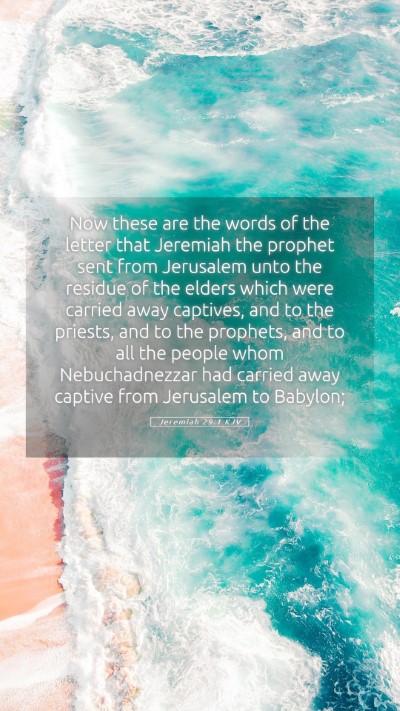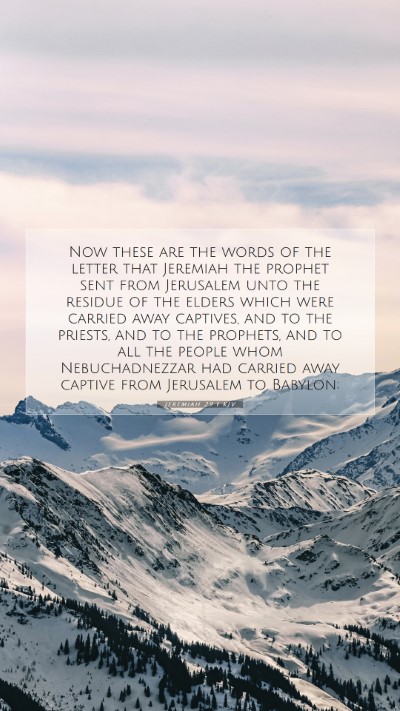Understanding Jeremiah 29:1
Jeremiah 29:1 serves as a foundational verse for grasping the context and message within the book of Jeremiah. This verse lays the groundwork for the entire chapter, which deals with the Jewish exile in Babylon and provides prophetic guidance and hope to the people.
Context of Jeremiah 29:1
In this chapter, God communicates through Jeremiah to the exiles in Babylon, addressing their situation directly. The verse states:
“Now these are the words of the letter that Jeremiah the prophet sent from Jerusalem unto the residue of the elders which were carried away captive, and to the priests, and to the prophets, and to all the people whom Nebuchadnezzar had carried away captive from Jerusalem to Babylon.”
Key Themes and Insights
-
Communication of God's Plan:
Jeremiah’s letter represents God’s purpose for the exiles. Unlike other prophets who might have given them a sense of despair, Jeremiah offers guidance and insight into their situation, showing God's continuing relationship with His people even in captivity.
-
Hope and Restoration:
This verse foreshadows God’s plans for restoration. Despite the hardship, God’s promise of hope is evident as He instructs the Israelites on how to live during their exile.
-
Understanding the Exile:
The captivity in Babylon is a momentous period in Israel's history, representing both judgment and opportunity for renewal. The elders and prophets receiving this letter provide insight into the proper response of the people during their time of trial.
Commentary Insights
To better understand the significance of Jeremiah 29:1, we can draw from notable public domain commentaries:
Matthew Henry's Commentary
Henry emphasizes how the letter serves as a divine reminder that even in their darkest moments, God is still in control. He notes how the exiles were encouraged to settle down, build houses, and seek the welfare of the city, thereby acknowledging their current situation while maintaining faith in God’s plan.
Albert Barnes' Commentary
Barnes provides insight into the historical and social context of the Jewish people during this time. He highlights the importance of the leadership and community aspects mentioned, as the elders, priests, and prophets play crucial roles in guiding the exiles. Barnes stresses the need for unity and perseverance among the people.
Adam Clarke's Commentary
Clarke's interpretation focuses on the specific audience of the letter and acknowledges the distress of the exiles. He points out that God uses Jeremiah to convey comfort and instructions for living in a foreign land. His message contains long-term hope, urging the Israelites to plan for the future.
Application of Jeremiah 29:1
This verse teaches us about enduring faith and the importance of maintaining hope amidst adversity. For believers today, it underscores:
- God’s presence in difficult circumstances.
- The significance of community and leadership within faith contexts.
- The necessity of responsibility in both personal and communal life, even when in challenging situations.
- Planning for the future with hope and trust in God's ultimate plan.
Conclusion
In conclusion, Jeremiah 29:1 is an essential scripture that offers profound insights into God's relationship with His people, especially during times of dislocation and hardship. Through studying this verse with resources such as Bible study guides and commentaries, one can find deeper understanding and application for today's life.
Cross References
To enhance the understanding of Jeremiah 29:1, consider these cross-references:
- Jeremiah 29:10-14: God’s promise of restoration for Israel.
- Isaiah 40:1-2: Comfort and assurance from God to His people.
- Ezekiel 34:11-16: God as the shepherd who seeks His people.


